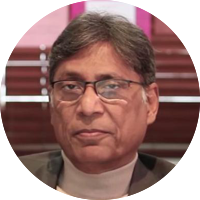Jalaluddin Mohmmad Rumi
Jalaluddin Mohammad Rumi (1207-1273), generally known as Rumi, was born in 1207 in modern-day Afghanistan. His father was called the Sultan of Scholars. Forced to flee, due to the invasion of the Mongols in Central Asia, Rumi’s father shifted to Karaman and then to Konya, in the present-day Turkey. Rumi breathed his last in Konya where a mausoleum was built in his honour after his death. This serves as a centre for the Mevlevi order of whirling dervishes till this date.
Masnavi, or Masnavi-i-Ma'navi is Rumi’s major work which contains 25000 lines. It is valued as one of the greatest epics of the world with deep spiritual intent and message. It occupies such a high place in general estimation that it is venerated as a Quran in the Pehlavi (Persian) language. Rumi’s other notable work is Dīvān-e Shams Tabrīz. There is an interesting story about why Rumi chose to name his Divan after Shams Tabriz. Shams Tabriz was a spiritual wanderer whose search for the “grand master-student” ended in his meeting with Rumi. However, this unlikely friendship between a high society Rumi and a wanderer called Shams Tabriz came to an unfortunate end. It is speculated that Rumi’s younger son murdered Shamsi Tabriz to preserve the family’s honour. However, Rumi made sure that Shams Tabriz was never forgotten. So, he chose to name his poetry collection after him. After meeting Shams, Rumi transformed into an ascetic. He blended music, dance, and poetry to establish a spiritual rapport with God which also made him one of the greatest mystical poets of all times. Apart from being a great poet, jurist, educationist, and discourse setter, Rumi has turned into a cult figure both in the East and the West. His grand tradition has been carried forward by the Mevlavi Sufi order across the globe.
Reference: https://www.rekhta.org/ebooks/hayat-e-maulana-room-shibli-nomani-ebooks?lang=ur, https://www.rekhta.org/ebooks/maulana-room-ki-kahaniyan-ebooks?lang=ur
Jalaluddin Mohammad Rumi (1207-1273), generally known as Rumi, was born in 1207 in modern-day Afghanistan. His father was called the Sultan of Scholars. Forced to flee, due to the invasion of the Mongols in Central Asia, Rumi’s father shifted to Karaman and then to Konya, in the present-day Turkey. Rumi breathed his last in Konya where a mausoleum was built in his honour after his death. This serves as a centre for the Mevlevi order of whirling dervishes till this date.
Masnavi, or Masnavi-i-Ma'navi is Rumi’s major work which contains 25000 lines. It is valued as one of the greatest epics of the world with deep spiritual intent and message. It occupies such a high place in general estimation that it is venerated as a Quran in the Pehlavi (Persian) language. Rumi’s other notable work is Dīvān-e Shams Tabrīz. There is an interesting story about why Rumi chose to name his Divan after Shams Tabriz. Shams Tabriz was a spiritual wanderer whose search for the “grand master-student” ended in his meeting with Rumi. However, this unlikely friendship between a high society Rumi and a wanderer called Shams Tabriz came to an unfortunate end. It is speculated that Rumi’s younger son murdered Shamsi Tabriz to preserve the family’s honour. However, Rumi made sure that Shams Tabriz was never forgotten. So, he chose to name his poetry collection after him. After meeting Shams, Rumi transformed into an ascetic. He blended music, dance, and poetry to establish a spiritual rapport with God which also made him one of the greatest mystical poets of all times. Apart from being a great poet, jurist, educationist, and discourse setter, Rumi has turned into a cult figure both in the East and the West. His grand tradition has been carried forward by the Mevlavi Sufi order across the globe.
Reference: https://www.rekhta.org/ebooks/hayat-e-maulana-room-shibli-nomani-ebooks?lang=ur, https://www.rekhta.org/ebooks/maulana-room-ki-kahaniyan-ebooks?lang=ur
Additional information available
Click on the INTERESTING button to view additional information associated with this sher.
About this sher
rare Unpublished content
This ghazal contains ashaar not published in the public domain. These are marked by a red line on the left.

